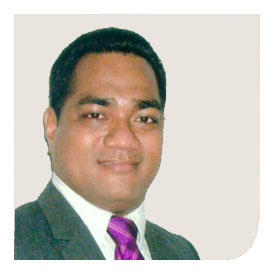 Kilifi Talakatoa Kilifi O’Brien
Kilifi Talakatoa Kilifi O’Brien
Degree: Master of Science in Climate Change
Graduated: April 2013
Current Position: Assistant Secretary, Ministry of Home Affairs, Government of Tuvalu.
What is your Job Position and Organisation that you are employed under?
Assistant Secretary, Ministry of Home Affairs, Government of Tuvalu.
What does your current career involve? (i.e your main responsibilities)
- Contribute to development, advocacy, monitoring, reviewing, reporting on nation-wide community services related policy;
- Contribute to key relationships with external and internal stakeholders;
- Contribute to the development of nation and region wide policy and implementation work plan for community services at the local government level (Kaupule);
- Monitoring and reporting of nation-wide and local community related outcomes for local government (Kaupule);
- Contribute to and participate in inter-agency projects that have community policy as their focus;
- Maintain relationships with internal/external stakeholders and manage the political interface;
- Contribute to input into legislative reviews, central government initiatives;
- Contribute to input into Island Strategic Plans, including the National Infrastructure Plan, the MDGs, the National Development Strategy (Te kakeega II) and more importantly the recent government Road Map
- Technical and specialist input into community services related policy, local boards, operational (community/environmentalprogrammes), major projects procedural/reference manuals related to infrastructure development projects.
How has your knowledge and skills gained from your studies assisted you and the organisation that you are working in with their duties related to climate change?
Under this AusAID Future Climate Leaders Project (FCLP) scholarship, I learned essential academic research skills and I became adept at its various techniques. I used the skills and knowledge I attained to contribute and input critically into nation-wide sustainable development policies with great emphasis placed around various aspects of climate change and disaster risk reduction.
Can you tell us about any success stories in your career after you have graduated that you believe was made possible with your study experience at PaCE-SD?
Subsequent to the completion of my scholarship under the AusAID Future Climate Leaders Project, I was also honoured to receive a prestigious Greg Urwin Award funded under the AusAID to do a six months attachment with the EU GCCA: Pacific Small Island States (PSIS) project at the Secretariat of the Pacific Community. For me, this is one of the highlights of my career and academic life.
What have you done differently/better now in your job after graduation?
Put people at the centre of development.
What ambitions do you have for the future in your career?
To be an agent of change in every aspect of life, be it at the community, church, national, regional or international arena but I give it all to the almighty heavenly father to direct and lead my life according to his will.
What are you most proud of in your life?
I am proud to be a father, a manager and one among the many being called to work and serve the Tuvaluan people specifically and where applicable, the people of the Pacific in general.
What inspires you to pursue the type of work that you are in?
First and foremost, it is my love and passion for the environment, particularly biodiversity. Secondly, I love to work with people and the community. To be more resilient to external forces requires building capacity at all levels whether it’s human, systemic, natural or physical. All these put together made me think that we have a duty to our people to educate them, to make them stronger and responsible citizens so that together we stand, we can look after our fragile tiny islands and make them a better a place that we long to live in regardless of what the future holds.
Who is your role model and why?
Nelson Mandela. Because as the former President of the United States Bill Clinton put it: The story of Nelson Mandela is a story of a man who never gave away two things: his brilliant mind and his great heart. And these are two great qualities that I think one has to be equipped with if true leadership is to be fully realised during these difficult times be it at the family, community, church, government, regional and/or international organizations.